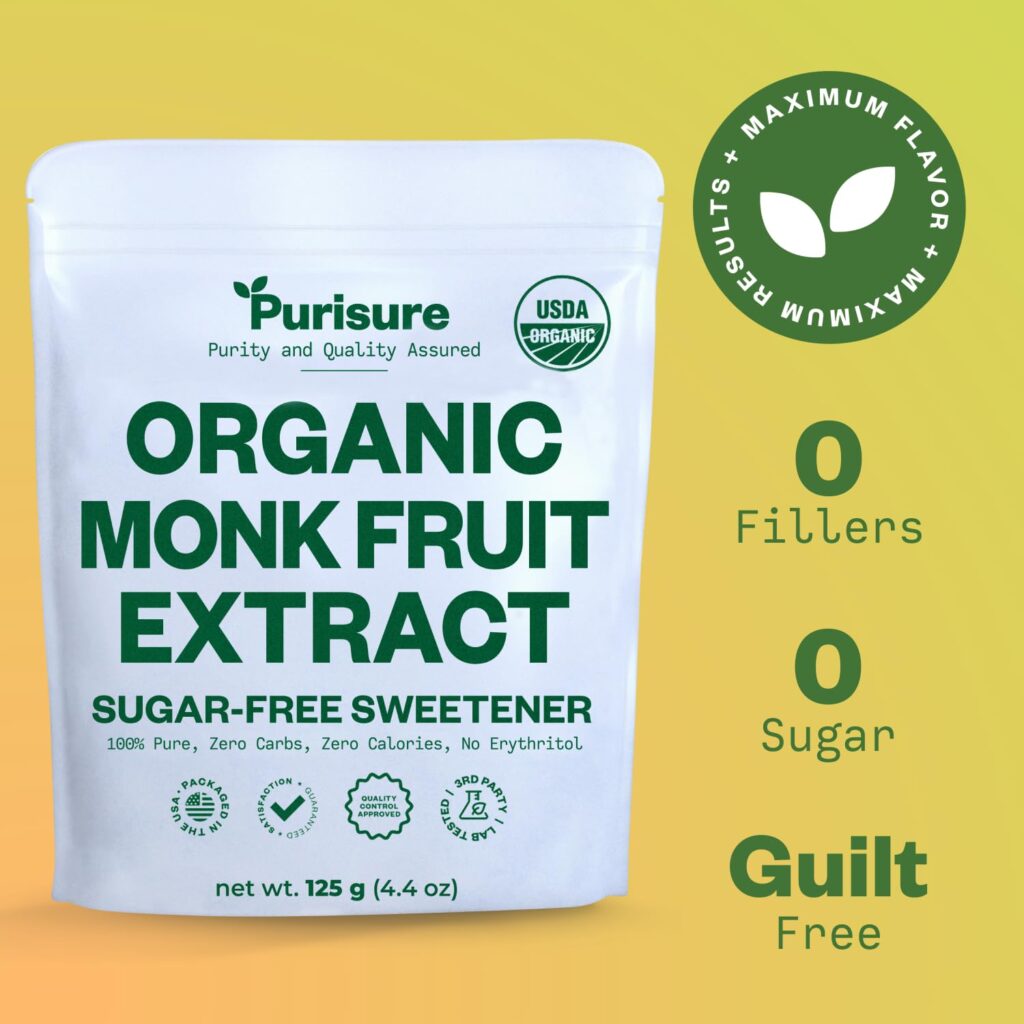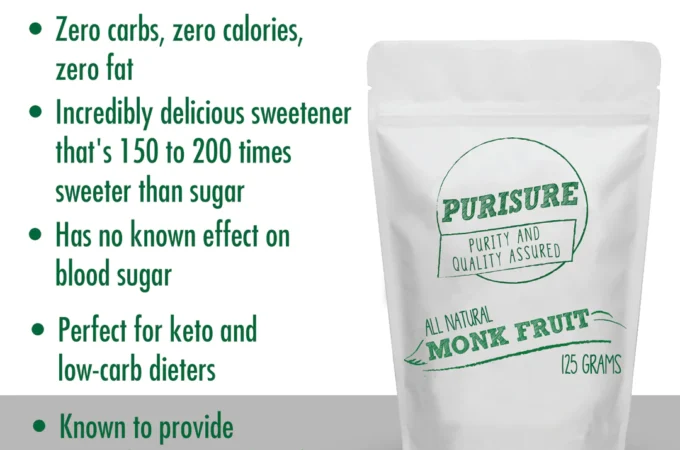
The Pros and Cons of Monk Fruit Sweetener
What is monk fruit extract?
Monk fruit, also named Luo Han Guo, is the fruit of Siraitia grosvenorii and has been used as both food and traditional Chinese medicine. [source]
The extract from monk fruit is about 300 times sweeter than sucrose. Use only a small amount to embrace a healthier, sugar-free lifestyle.
This all-natural sweetener provides a sweeter taste without any artificial or bitter aftertaste, making it an ideal ingredient for use in any hot or cold food and beverage of your choice.
Add sweetness to your culinary creations and beverages while prioritizing your well-being.
Pure Monk fruit Sweetener
- No Fillers
- Pure USDA Organic Monk Fruit Extract Powder
- Little Aftertaste
- Zero Calorie & Zero Carbs
- Keto & Paleo Friendly
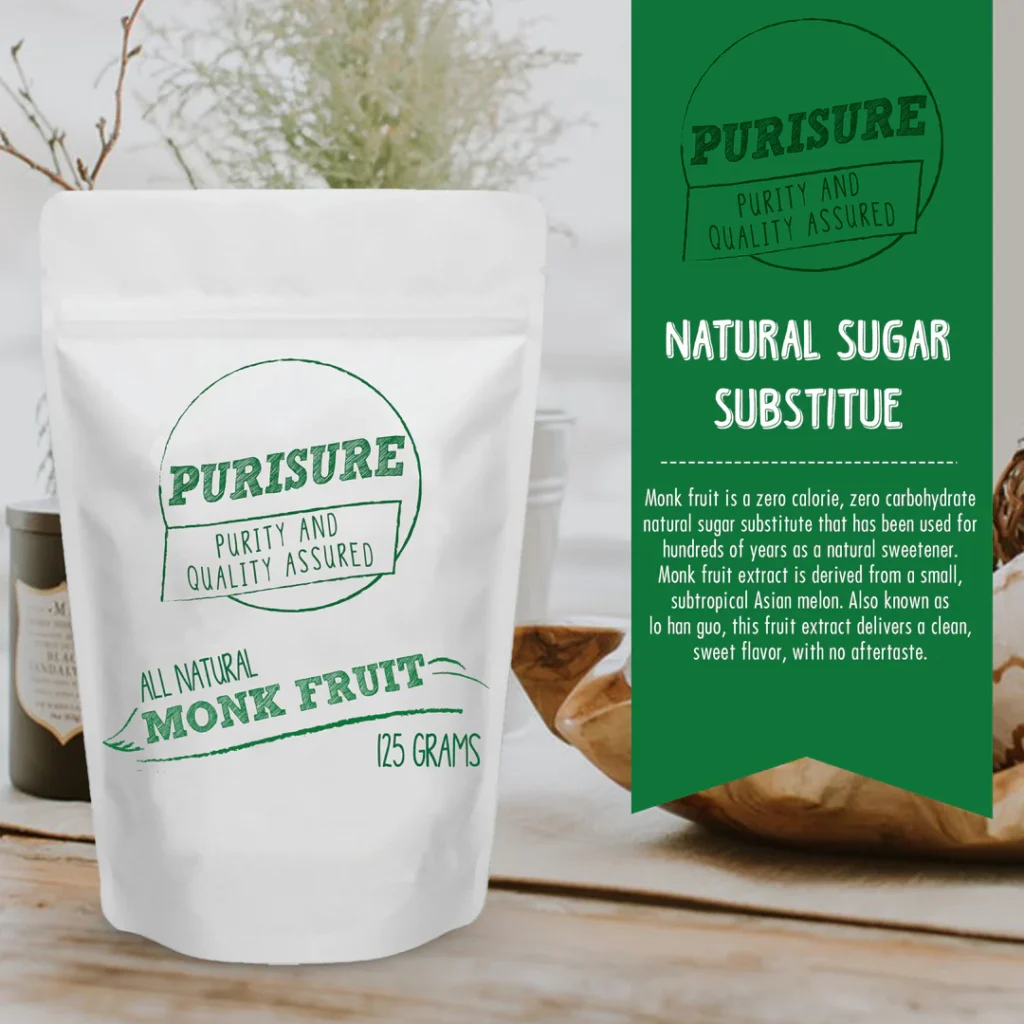
What is the Glycemic Index Number for Monk Fruit? Zero.
Monk fruit extract is rated a zero on the glycemic index and has zero calories and zero carbs so it won’t spike blood sugar.”
Studies done with diabetic mice showed that monk fruit extract may even reduce blood sugar levels. The mice had lower oxidative stress and blood sugar levels and increased levels of good cholesterol.
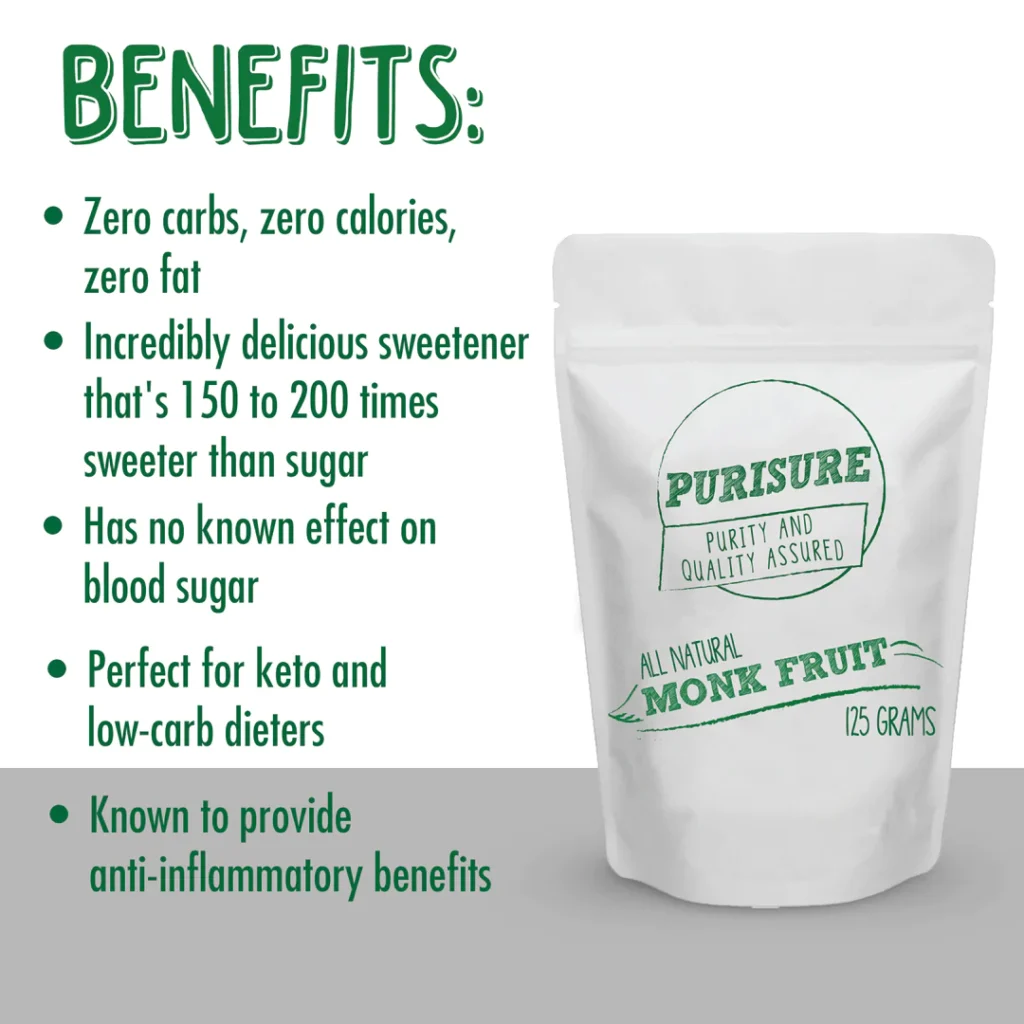
Ketogenic. Non-GMO. Vegetarian. Low-glycemic. Gluten-free. Sugar-free.
Swap it in place of any regular sweetener but you will need way less of it to get the same sweetness.
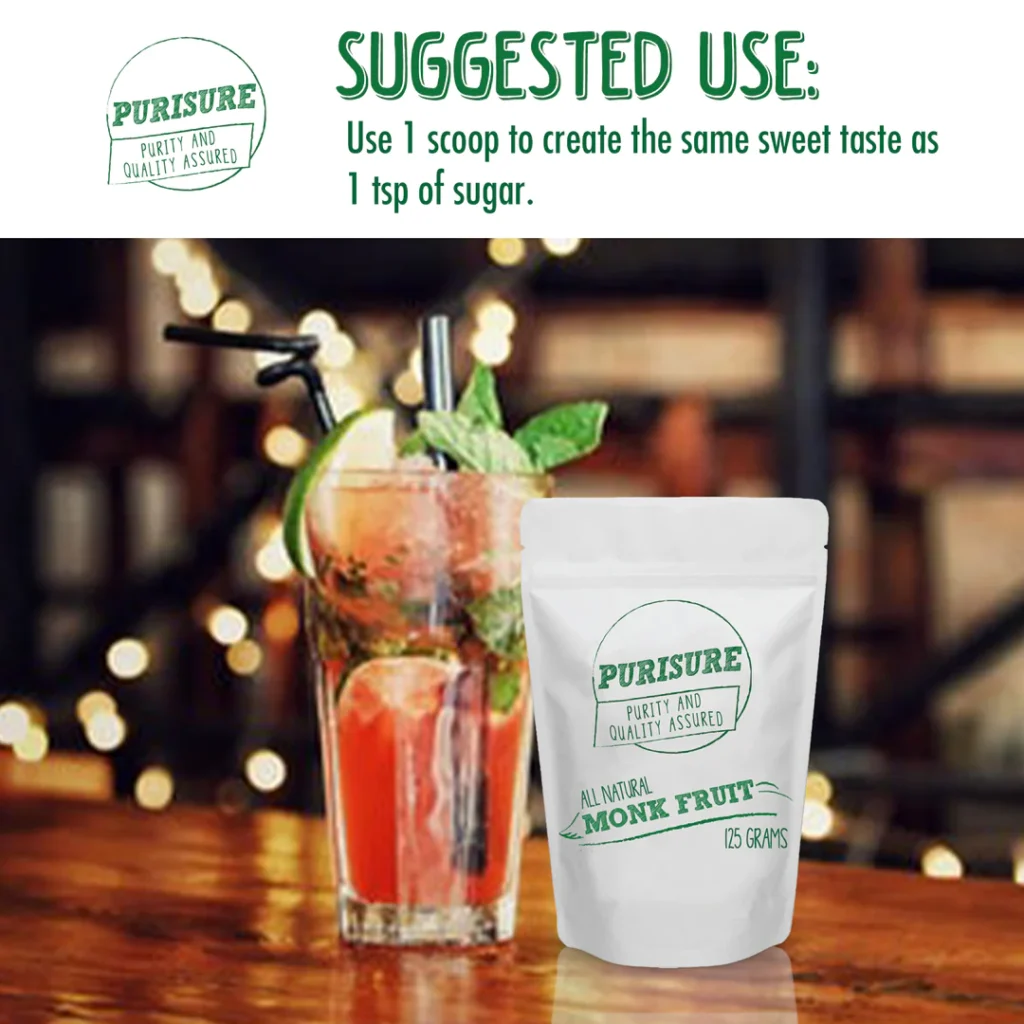
Recommended
-
Dandelion for Liver Support and Health BenefitsJuly 20th, 2024
-
Modified Citrus PectinJuly 11th, 2024
-
Bentonite Clay Mask for Face and ArmpitsJuly 8th, 2024
-
Two Supplements for Erectile DysfunctionJune 30th, 2024

